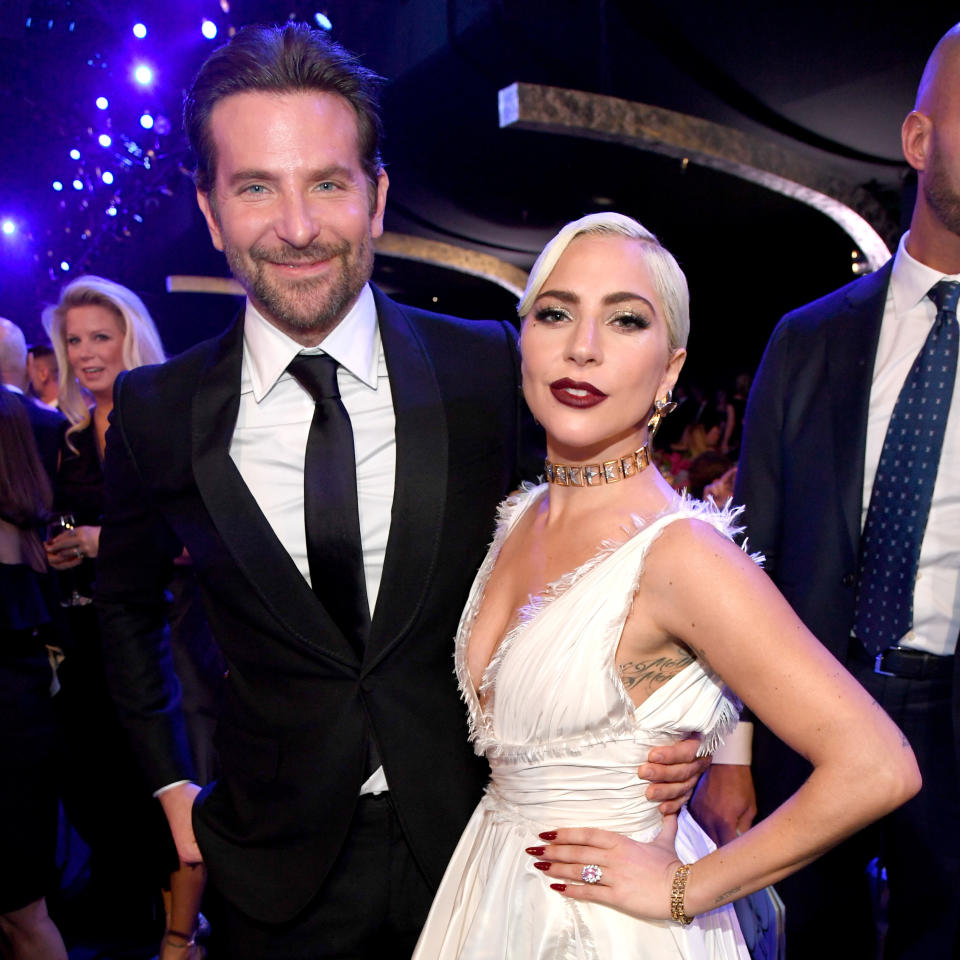The hidden victims of online piracy

5 February marks Safer Internet Day. All week on Yahoo Movies UK we’re going to be exploring the murky world of online piracy, how it affects the film industry and you.
You like movies, right? You enjoy listening to the latest hit songs or revelling in the golden age of TV? Well, although it may seem like everyone in Hollywood and the music industry are multimillionaires, throwing their money about while you scrimp to afford a trip to the cinema or pay your Spotify subscription, it’s important to remember that your cash is what keeps that fresh content coming.
“When you look at all the glitz and glamour, it’s understandable that young people might assume everyone is fabulously wealthy,” says Paul Reeve, CEO of British educational charity IntoFilm. “The reality is that only a tiny percentage are. We promote an understanding that getting a film on a screen involves many hundreds of people – just look at the list of end credits on any movie – and there are hundreds more who don’t get a credit. The vast majority are very far from wealthy. They have jobs and get paid because people pay to see the films they’ve worked on or helped to get on the screen.”

“By paying for content we’re not only securing those jobs, but we’re also making sure the films and shows we love to watch continue to get made,” adds Yasmin Nevard, from UK consumer education body The Industry Trust.
And here lies the paradox. Someone wants to see a movie, but doesn’t want to pay for it. So they find it online illegally, download it and watch it, something around a third of over-16s are currently doing via any method (such as torrent sites or via illegal apps on streaming devices). Not only is that against the law, but gradually, incrementally, it’s taking money out of the business which will mean a future of fewer films that people want to watch and less content to enjoy. It’s also extremely damaging to the UK economy at a time when it can little afford to be.
Read more: Why piracy is more dangerous than you think
“The UK is one of the world’s leading markets for filmed entertainment,” says Simon Brown, director of the Film Content Protection Agency (FCPA). “At a time of ever more UK-first as well as global ‘day-and-date’ (simultaneous) film releasing, the UK is particularly vulnerable to attempted illegal recordings…The focus of the FCPA’s work is to stop illegal copies of films leaking out from the UK in the first place. By protecting copyright, not only are creators’ rights upheld, but importantly too the industry’s own capacity to reinvest and develop new projects and new talent, is enhanced.”
The FCPA works close with government, including agencies like the UK’s Anti-Illicit Trade Working Group and the Scottish Illicit Trade Enforcement Group, to explore the impact of counterfeit business on industry. As their new report suggests, “illicit trade continues to rise, stifling UK businesses and funding organised crime at all too little risk.”

But if all that seems somehow out of your purview, then consider this. Imagine you want to be a pop star, or an actor, or a movie director or a cameraperson, or a make-up artist. You want to get paid for doing it, right? Why should anyone expect to get paid if they’re not prepared to pay for it themselves? Even worse, if pirating continues, then there might not even be the option of those jobs in the first place due to the shrinking of the creative sector, which currently employs around two million people in the UK.
“Piracy can dilute the value of music, film and TV and essentially affects jobs, not just big content owners,” says Ilona Smyth, a lawyer at the Beggars Music Group. “Buying a cinema ticket, paying for a Netflix account, listening to music on Spotify or similar services are all acts that support the future of the creative industries. It allows the companies, for example music publishers and record companies, to invest in in the musicians and creators of the future. Essentially, it is creators that lose out – musicians need to be paid like everyone else.”
Read more: How piracy puts children in danger
Kieron Sharp from the Federation Against Copyright Theft (FACT) agrees. “Approximately 95% of all companies involved in the creative industries employ less than 10 people and so it does not take too much piracy impact to have a huge effect that can be disastrous on a small or medium-sized business,” he says.
“It is not about the film stars, the big broadcasters and the film makers,” he continues. “From sound engineers, costume designers, set carpenters and camera crew – hundreds of thousands of people’s jobs are directly affected each time a film or TV show is pirated. Many young people leaving education will be hoping for a career within or linked to the creative industries and may miss an opportunity through the significant harm being caused currently.”
Read more
The best movies of 2018
The best movie posters of 2018
Under-appreciated 2018 movies you might have missed

 Yahoo Movies
Yahoo Movies 
